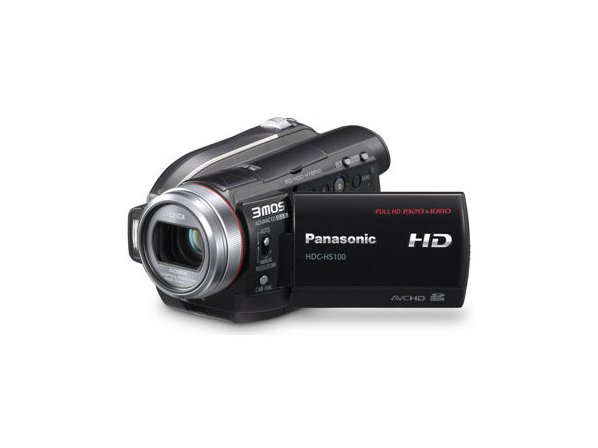Forget 3CCD - Panasonic introduces 3MOS

Panasonic seems to have ditched the 3CCD sensor in its latest range of camcorders for 3MOS. This means that the new cams use three CMOS sensors instead of the traditional CCD.
CMOS has always been seen as the more complex sensor when it comes to recording footage, and less power hungry, but its reduced weight and lower cost has seen it become a direct rival to CCD.
The new technology is said to give superior image quality and increase the quality of low-light shooting – the camcorders can work in situations as low as 2 lux.
The three CMOS sensors process the red, green, and blue components of incoming light separately, so colour reproduction is said to be superior.
New range
The camcorders to house the new CMOS technology are the HDC-SD100 and HDC-HS100. Both shoot Full HD footage. The SD100 records its footage to SD card, while the HS100 is a hybrid cam, recording to a 60GB HDD and SD.
Speaking about the upcoming camcorder launches, Zoe Susice, Group Manager, Imaging, Panasonic, said: "The camcorder market is moving swiftly to high definition and superior image quality is now a must-have feature. Moreover, many consumers are also demanding higher-level features, and the ability to be more creative.
Sign up for breaking news, reviews, opinion, top tech deals, and more.
"For these users, we introduce two new full-HD 3MOS models - the HDC-SD100 and HDC-HS100 - with manual functions that give users the power to create dramatic, artistic images."
As with all Panasonic models, Leica is the lens of choice for the new range, and the cams also have Viera Link, so they can be fully integrated into an existing Panasonic home-cinema setup.
The new camcorders are released in Japan in July. They head to the US in September, priced at $1,299.95 (£650) for the HDC-SD100 and $1,099.95 (£550) for the HDC-HS100. So expect them to hit UK shores soon after.

Marc Chacksfield is the Editor In Chief, Shortlist.com at DC Thomson. He started out life as a movie writer for numerous (now defunct) magazines and soon found himself online - editing a gaggle of gadget sites, including TechRadar, Digital Camera World and Tom's Guide UK. At Shortlist you'll find him mostly writing about movies and tech, so no change there then.